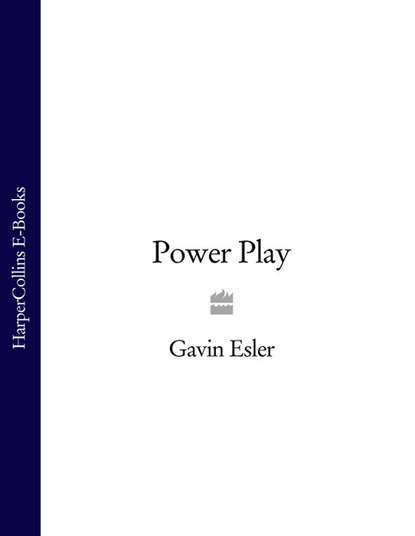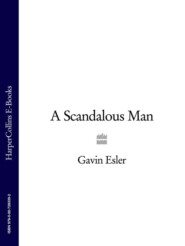По всем вопросам обращайтесь на: info@litportal.ru
(©) 2003-2024.
✖
Power Play
Автор
Год написания книги
2018
Настройки чтения
Размер шрифта
Высота строк
Поля
* * *
Kristina Taft understood this quicker than anyone. She had been confirmed as National Security Adviser and called me a couple of days later. She decreed that our first private meeting would not, under any circumstances, take place at the White House. She suggested breakfast one morning at her apartment in the Watergate.
‘At six.’
I gulped. ‘Six a.m.? Sure.’
Kristina explained that she usually woke at five, sat on an exercise bike for thirty minutes, read some papers, and then left in time to get to the White House before seven every morning. I considered the private meeting a show of trust and an honour.
‘I don’t want word to get out to anyone,’ she warned me.
‘Anyone?’ I responded.
‘Especially not the Vice-President. I’ll send the help away.’
By the ‘help’ she meant her security staff as well as her maid. When we met she was alone.
‘I’m the new kid on the block,’ she said over poached eggs and muffins. From the start there were whispers that Kristina was too young for the job, and that it was not much of a job anyway–just ‘executive assistant’ to the Vice-President who was driving national security policy himself. In Washington it’s like this. You can go from being ‘up-and-coming’ to ‘has-been’ without any intervening period of success. I could feel Kristina’s nervousness.
‘Until this administration, I only ever came to DC as a tourist,’ she said. ‘You have been here for years, Alex. I need advice on how to handle it. How to get it right.’
‘Arlo Luntz will tell you that there are no second acts in Washington life. You have to get it right first time.’
‘Luntz is extraordinary.’
‘Yes,’ I said, ‘take time to get to know him. He’ll also tell you that the best people know what they do not know, and strive to fix it.’
Maybe that was the reason I liked Kristina from the start. That was what she was like too. In that first breakfast meeting I suppose I showed off a bit. I told her how administrations had functioned in the past. I had been in Washington for part of the Clinton years and part of the George W. Bush debacle, and I knew people who remembered Bush senior, Reagan, and Carter.
‘Who was it who said that happy families are all alike, but unhappy families are each unhappy in their own particular way? Anyway, the same is true for political administrations or governments. In my experience, they always end unhappily.’
‘Always?’
‘Always. Sometimes, like now, they begin unhappily. Unhappy does not mean ineffective. DoD, State, Justice, and the CIA are always at each other’s throats. That’s normal. That’s life. That’s power. You–as National Security Adviser–have to act as referee. Honest broker. That’s why President Carr wants you around. He trusts you to be honest and fair. Sometimes the infighting will suck in Treasury as well, but all of that’s manageable. The problem … well, I’m not sure how you can fix a problem like Bobby Black.’
‘Me neither,’ she admitted, brushing a few crumbs of muffin from her lips.
‘You want people to read novels on Muslim culture; he wants to bomb somewhere. Almost anywhere will do. There’s not a lot of give and take here, I’m thinking. He’s a problem for us too.’
‘Fiction’, Kristina shrugged, but her face remained impassive, ‘is always a kind of Lie, but it only works because it is also a kind of Truth. And it is a Truth we all need to hear, even Vice. I have been talking to Arlo about this. Arlo is in on everything, and he jumped in on my side about the reading list. It was a small thing, but it helped.’
‘How exactly?’
‘Arlo told the President that all power demands a degree of fiction. The way Arlo sees it, people in power are not supposed to lie, but they cannot tell the truth all the time either. We require believable stories, simple explanations, myths, what the newspapers call “spin”. A convenient fiction, Arlo calls it, and he says it is better than a complicated truth for most voters.’
‘The real question is, whose spin, whose fiction, or whose myth gets accepted,’ I said. ‘Whose truth or version of the truth do we trust?’
‘That’s why history always belongs to the victors,’ Kristina said, offering me another toasted bagel, which I declined. ‘Winners dictate the truth. More coffee?’
‘Please.’
‘So, anyhow … Spartacus,’ she switched tack as she poured. I watched her carefully, not sure what to make of her. She spoke fast; she thought fast; she did not suffer fools gladly, or at all. And I confess that from that first conversation she wound me into her. I would gladly have stepped inside her brain with a flashlight and have a look around.
‘Yes, Spartacus.’
‘Well?’ Her grey eyes were steady as they looked into mine. ‘You were in Northern Ireland, right? Would the Spartacus Solution have helped?’
She arched an eyebrow. She already knew my answer.
That night of the ice storm, the night I had discovered Fiona with James Byrne, Fiona had immediately packed her bags and headed to the airport in the teeth of the bad weather. She caught the overnight British Airways flight back to London. We did not say goodbye. After she left I sat in the study at the ambassador’s residence, poured myself a large whisky and read through General Conrad Shultz’s document. Page after page of it promised a relentless war on terrorists, their supporters, and the regimes that gave them space to operate.
‘Well, Spartacus is a view, I suppose,’ I told Kristina. ‘A one-eyed, one-dimensional approach–let’s kill bad people. If only life were that simple, and that all the Bad People wore black hats so we knew who they were. What we learned in Northern Ireland is that nobody is born a terrorist. We are all born as babies. So you need to have a two-or three-dimensional approach–fight, kill if you have to, but also persuade, cajole, bribe, whatever it takes to stop the baby growing up wanting to kill you …’
‘Exactly!’ she clapped her hands together and poured me more coffee. ‘Exactly! Do you think it sends the right signal when the new Director of Central Intelligence says we should treat terrorists like ancient Rome treated rebellious slaves, crucifying them on the streets? And the Vice-President buys into it? It’s just another Faith-Based Initiative–you do it and you pray to God it might work. Well, what happens when this is leaked? When some of it gets in the newspapers? You know what the reaction on the Arab street will be? “Here come the Christian Crusaders one more time.” It plays into every prejudice about us and our motives. Dinosaurs. Goddamn dinosaurs.’
Now it was my turn to shrug. ‘I don’t understand why Black and Shultz seem so determined to piss off a billion Muslims, most of whom do not want to be our enemies.’
‘Me neither,’ Kristina shook her head. I could feel her mind whirring with ideas. ‘Spartacus will tear us in two,’ she said, indiscreetly. ‘You are either for it or against it, and … I guess I’ve said enough.’
It was time for me to go. I asked to use her bathroom while she cleared the breakfast dishes. I have always been nosey about other people’s lives. At parties I sometimes open bathroom cabinets and take a peek. In Kristina’s case perhaps I was looking for signs of human habitation. Did she have a man? Why did I care? As I peed, I looked around. There were no signs of male habitation, but I noticed a polished steel cabinet on the wall. I don’t know why I tried to open it, but I did. It was locked, of course, and with no sign of a key. Perhaps Kristina expected from her visitors precisely the kind of nosiness I was demonstrating. When I came out of the bathroom Kristina walked me to the door. She gazed straight into my eyes and gave me that smile of hers.
‘Can I ask you something else?’
‘Of course,’ I said.
‘I hear you and Fiona split up a couple of months back.’
I swallowed. ‘I… we … have things to … work out.’
Kristina looked at me with sympathetic warmth. ‘Washington is a killer for relationships. Harry Truman said that if you want a friend in Washington, get a dog.’
I laughed. ‘Harry Truman also said that if you tell someone to go to hell you should be able to see that he gets there. An observation which is lost on the Vice-President, I think.’
‘Does the Fiona thing affect your relations with the Prime Minister?’
‘No. At least I don’t think so.’
‘That’s good.’
We kissed each other goodbye, on the cheek, chastely, European style.
‘Let’s do this again,’ she said.
‘Definitely,’ I replied.
It was by now seven thirty on a Monday morning and by her standards Kristina Taft was already late for work. I wanted to see her again, even if the reasons why were jumbled up in my head. I caught a cab from the Watergate up Embassy Row, my mind buzzing from the meeting, wondering whether I should call Kristina back and if so when.
I had no time to take a decision because the moment I arrived at my desk I received a hand-delivered letter from a lawyer employed by James Byrne. I suppose I should have expected it. If anything, after I hit him, I had expected something even worse. I am not sure how he left the residence that day. After the punch to the throat he would have needed medical treatment. I assumed that he might call the police and cite me for assault, but he didn’t. What Byrne did do was to get his lawyer, Dan Feingold, to write a threatening letter. It said that I had caused ‘laryngeal trauma’. His smashed voice box, according to a specialist’s report that the lawyer had helpfully included, meant Byrne faced a permanent impairment in his ability to speak. I confess it made me laugh out loud. The lawyer’s letter said Byrne had been ‘forced to give up a lucrative career’ on the Sunday TV talk shows and would be seeking ‘punitive damages’ from me. I stared at the letter for a while and when I calmed down, I called the lawyer on the telephone number at the top of the headed notepaper.






